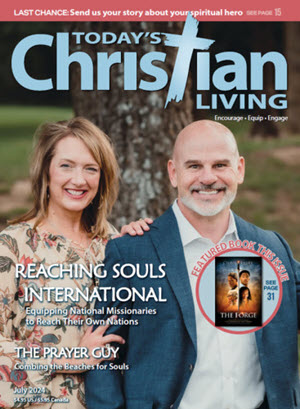In May 2004, the World War II Veterans Memorial was dedicated in Washington, D.C. In his Ohio office, retired Air Force Captain Earl Morse, a physician’s assistant (P.A.) in the U. S. Department of Veterans Affairs, shook hands enthusiastically with his WWII patients.
“Congratulations on your memorial! Do you think you’ll go to Washington?”
They nodded, certain they would visit their memorial, assuming that a relative or VFW unit would organize a trip. Yet, at following checkups, none had traveled to D.C. With 1,000 compatriots dying each day, the reality dawned on them, and on Morse: due to physical or financial limitations, they would die before viewing the memorial in their honor.
Birth of a Dream
Over 16 million Americans served in World War II. Of those, 400,000 of them made the ultimate sacrifice, laying down their lives. Only 2 to 2.5 million veterans remain.
Morse, a pilot himself, hatched a plan. He asked a veteran in December 2004, “Would you let me fly you to the memorial, free of charge?”
His patient burst into tears.
His second patient burst into tears.
Morse’s plan was beginning to cement. He asked his aero club for pilots willing to carry two veterans to Washington, D.C. The stipulation? The pilots must cover all expenses, allowing the soldiers to fly for free.
In May 2005, in Springfield, Ohio, seven airplanes started their engines at sunrise and rose into the sky, carrying twelve of the happiest veterans in the world.
Divine Covering
When those dozen soldiers flew off, 168 veterans were on a waiting list. Seven died while hoping for their once-in-a-lifetime visit. This only renewed Morse’s determination. Although he was working full time as a P. A., he spent his nights trying to raise funds.
Behind his drive, he says, was his respect for the veterans. “They are the most humble, stoic, appreciative, patriotic people I’ll ever meet.” He increased his efforts by emailing defense contractors and other businesses for contributions, without results.
“It was an exhausting, dark time,” Morse says. “I was so angry at God. One night, I prayed, ‘God, I cannot believe you would turn your back on these people. They collectively and literally saved your world, your chosen people, and you’re not doing anything. You know how much I love these veterans.”
Into that bleak night of the soul, God pressed into his heart an answer: “I love these veterans more than you can imagine.”
A peace settled over Morse. Waking his wife, he said, “Everything will be okay. I don’t know how, but it will.”
Prayerful Foundation
Miraculously, funding poured in. When their first commercial flight flew from Dayton, Ohio, Morse told the passengers at the gate, “I’d like to have a word of prayer. You WWII veterans are no stranger to prayer.
You prayed before every battle.” Now, without being asked, the airline personnel handed him the microphone. People passing by bowed their heads.
Taking veterans ranging in age from 80-96 is no small endeavor. Walkers, wheelchairs, oxygen, and emergency medical plans are only samplings of the logistics. Morse told one veteran with complicated medical issues, “If you go on this flight, there is a possibility, even a probability, that you will die there.”
The soldier replied, “I’ll feel sorry for the mortician, then, who has to surgically remove the smile from my face.”
Death in transit is not the worst-case scenario; a broken hip represents the greatest nightmare because the vet would be trapped in D.C. to heal. But in five years, not one has broken a hip.
“What are the chances?” asks Morse. “We have been extremely blessed. We always call upon God’s favor to watch over our vets and flight crews. He has never let us down.”
Tour of Blessing
In 2008, Southwest Airlines became the official sponsor of Honor Flight, donating thousands of tickets, expanding their reach significantly. More than 37,000 WWII veterans across America have participated in the all-expense paid trip to D.C., including airfare, chartered bus, meals, and Honor Flight shirts and hats.
From the beginning of the trip to the goodbyes, the soldiers are celebrated. Passengers in airports stand and cheer. After an Honor Guard send-off from the origin airport, military bands greet their arrival. The veterans beam—and weep—at the medley of service songs.
They view the Tomb of the Unknown Soldier and the changing of the guard; the Marine Corps Memorial (Iwo Jima); the Mall with views of the Capitol, Smithsonian Museums, and the Washington Monument. But nothing compares to the joyful visit to their memorial.
There, crowds of touring students, families on vacation, and dignitaries await the veterans. Bands play.
People applaud and children pump the soldiers’ hands. They give hand-written thank you notes with return addresses, hoping for answered letters. White House representatives, including
Senator Bob Dole, are among the welcoming crowd.
As the soldiers pass between lines of people clapping and cheering, their eyes well. They are unashamed of their tears. Before them stand the very people for whom they fought, the very freedoms for which they were willing to lay down their lives.
On one trip, Morse accompanied two soldiers through the Memorial. Several children thanked them, then asked, “Would you mind if we pray for you?” Upon approval, the children offered a beautiful prayer. Afterward, Morse asked the veterans, “Did you feel uncomfortable?”
“Of course not. That is one of the reasons we fought.”
Changing Lives
At an Honor Flight Network open house, the daughter of a WWII soldier shared pictures of her father. The final shot showed him with his Honor Flight. “Do you notice anything?” she asked. “My dad never smiled in any pictures, except the one on the Honor Flight. After that, he kept smiling. He changed on that day. For the last six months of his life, he was a different dad.”
The healing shows up often in the soldiers’ willingness to speak, at last, of their war experiences. Many veterans, because they made it back from the war, do not consider themselves heroes, saying, “The heroes died over there.”
But Honor Flight acknowledges everyone’s contributions. Morse says, “The WWII veterans defended not just this country but everything we are: military, values, natural resources. During one of the darkest times in our nation’s history, God blessed us with incredible people who stepped forth, willing to risk their lives to protect everything.” Their valor and service saved the world.
Wait-Listed
The need for volunteers is urgent. There are 6200 veterans wait-listed, many from states without HF hubs. Many thousands of veterans haven’t even applied. Currently there are 100 hubs in 34 states, all volunteer organizations. Whether assisting in flights or organizing a hub, volunteers can significantly impact veterans’ lives, like one airline passenger who stood, thanking the soldiers on the Honor Flight: “My father was in a concentration camp, which you soldiers liberated.” Her voice choked. She wouldn’t exist without the veterans who answered the call.
The Last Sentence
So great is the impact of their visit to the Memorial that when the final paragraph of these veterans’ lives is written, the final sentence in their obituary will read, “He participated in the Honor Flight.” It’s not too late to help them write that last line.
This unique partnership is transforming the lives of veterans across America and the lives of their families.
“God was right,” Morse says with emotion. “He really does love these veterans.”






